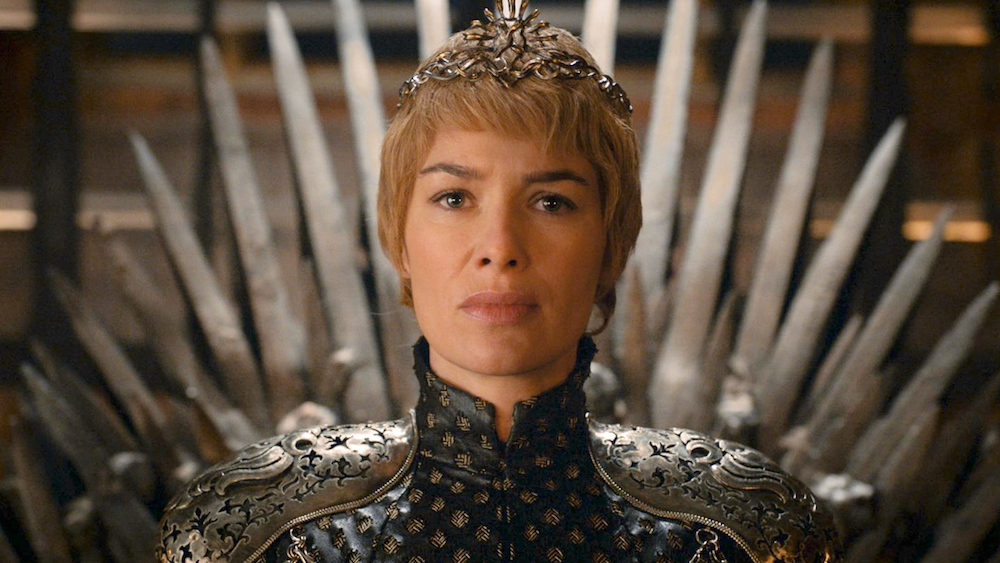Game of Thrones Is a Show About the Exercise of Political Power
The seventh season finale finds its characters struggling to project legitimacy.

(Spoilers for the season finale of the seventh season of Game of Thrones below.)
The seventh season of Game of Thrones, the season finale of which aired last night, has been alternately frustrating and thrilling: At just seven episodes long, rather than the usual 10, and with major plot developments coming at a far more rapid clip than ever before, the penultimate stretch of the show has been both too short and too fast.
The show's early season were built on pacing so methodical as to border on agonizing; it gave you time to fully consider the characters and the peril they were in, and then frequently forced them to suffer the worst. Instead of a crawl, this season, in contrast, has been more of a sprint, frantically delivering twists and turns and epic action at which the early at seasons only hinted. It's grander and more cinematic, but less personal, and at times it feels like a subtly different show.
But the through it all, the show has maintained a fascination with the exercise of political power, and the variety of ways that those who seek it attempt to assert legitimacy.
The first half of last night's finale was concerned with a meeting between the warring rival power centers in Westeros: Cersei Lannister and her allies on one side, and Daenerys Targaryen and her allies and armed forces, which include a pair of dragons on the other. Both Cersei and Daenarys believe themselves to be the rightful rulers of the land, and over the course of the show, both have made it clear that they intend to destroy the other one in order to claim power over their domain.
In the process, both women have built armies out of complex systems of alliances with other powers: Cersei, for example, has aligned with Euron Greyjoy, who controls a fleet of ships, as well as with the Iron Bank, which gives her access to credit that she can use to buy both troops and a measure of loyalty. Daenarys, on the other hand, has a pair of dragons, as well as the Unsullied army, and the horse-riding Dothraki. More recently, she has accepted a pledge of allegiance from Jon Snow, now the King of the North, and the region he controls.
Each of these alliances provide military strength. But they also convey political legitimacy. They are designed give the impression of power that is not merely taken by brute force, but is somehow earned. You see this later in the show, too, when Daenarys and Jon Snow plot a march north. They decide to go together in order to be seen by the public as involved in a freely chosen power-sharing alliance. (It doesn't hurt that they are also in love; the show often provides reminders that the quest for power and politics does not always follow a logical path, but is subject to human whim, weakness, and desire.)
Creating the appearance of legitimacy is not the same thing, of course, as actually earning it. Indeed, one of the questions the show frequently asks is whether that sort of power is ever truly supported by anything other than raw force. It is a show that is deeply skeptical of the idea that political power can be truly legitimate. It frequently seems to suggest that the systems by which power is exercised and passed on are inherently arbitrary and contingent.
That idea is embedded in the scenes that take place at Winterfell too, between Sansa and Arya Stark, two sisters who finally enact revenge on Little Finger, the scheming operative who has been pulling their family apart and pitting power players against each other since the show began. Sansa has taken charge of Winterfell in part by virtue of her family history, but also because she appears to be a wise and effective ruler. Good management is hard to find, in any age, and some people will follow competent leaders simply by virtue of their ability to get things done. Power can be claimed and maintained by displays of pragmatic value.
And, of course, it can be exercise through raw, animal force as well: Looming over every scene in last night's episode is the coming of the White Walkers, an army of undead marching steadily towards the lands that everyone else is fighting over. The White Walkers were created as the byproduct of an ancient struggle (a reminder that there are unintended consequences for every action), but over thousands of years, they have become a kind of (un)natural force. Unlike the humans in Westeros, they have no complex strategy, no system of government, no human desires. They simply kill and consume all that is within their path—and if they are not stopped, then the grand designs the show's other players have for Westeros, and for their own lives, will mean nothing.
In the world of Game of Thrones, then, political power amongst the living is always fraught, always tenuous, always in flux. It is ugly at times, and can seem all-important to the humans, but it is also small and frail, constrained by borders that can fall at any moment, and limited by human weaknesses. And its greatest challenge, in the end, comes not from the designs of human rivals, but from the inexorable march of death, and the unthinking, uncaring forces of the world that even the most successful practitioners of power and politics will never really control.


Show Comments (44)